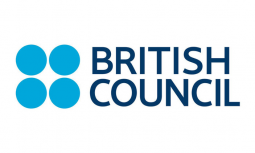The European Volunteer Centre, the Croatian Volunteer Development Centre, Rijeka 2020 – European Capital of Culture, and the City of Rijeka are holding the international conference “Volunteering in Culture” on 19 and 20 April at the Croatian Cultural Centre in Sušak. The conference will bring together more than 120 representatives from volunteer centres and numerous European organisations which include volunteers and other participants related to the topic.
This was announced at a press conference held in the Rijeka Gallery Kortil by Lejla Šehić Relić, vice-president of the European Volunteer Centre and member of the Executive Board of the Croatian Volunteer Development Centre, Marta Hauser, head of the SMART Association’s Volunteer Centre, Irena Kregar Šegota, head of the Development and Strategic Partnership Sector of RIJEKA 2020 Ltd and Jolanda Todorović, head of the Programme Coordination Department at the Croatian Cultural Centre and Filodrammatica.
The conference “Volunteering in Culture” aims to strengthen the capacity of organisations in the field of culture. It is funded by the European Union’s Europe for citizens programme and the Croatian Ministry of Demography, Family, Youth and Social Policy, and will be held in 2018 – the European Year of Cultural Heritage. It will try to identify the specifics of volunteering in culture, where users of volunteering activities are not directly visible as in other areas, such as social services or work with young people. It will also examine ways in which volunteering in culture promotes intercultural dialogue, human rights, social values, etc.
Lejla Šehić Relić talked about the values represented by the leading organiser of the conference – the European Volunteer Centre. She emphasised the paramount importance that this network of more than 60 European organisations dedicated to promoting and supporting volunteering gives to values such as multiculturalism, acceptance, inclusion, but also volunteering and encouraging civil activity.
“This is where culture and volunteering come together and merge. But we want to make them even stronger and come up with possibilities for a more active involvement of citizens in culture and their own creative expression through volunteering. In this context, we think that Rijeka has sent an extremely important message with its motto The Port of Diversity. To us as an organisation that encourages an open democratic society, this support of diversity is important”, said Lejla Šehić Relić.
On behalf of the local organiser, the Association SMART, Marta Hauser stressed that to everyone involved in the EPK project, including SMART which participates in this and other programmes, it is important that citizens stop “just” being the audience at cultural events.
“We want to encourage those who are not directly involved in creating culture – to become involved. Because if we involve people with different skill sets and motivations, we can get much more out of the process than we would get without them. It is also important to say that by getting involved, citizens start to view the projects as something personal, so they develop a different attitude towards them. SMART will help organisations involved in the preparation of the European Capital of Culture project that want to involve volunteers in their work to do that in a better way, and inform citizens about volunteering opportunities”, said Marta Hauser.
She announced that the participants of the conference will learn how to protect the well-being of the volunteers in culture and how to develop their special skills. The motivation of volunteers in culture, often associated with their personal interest in art or history, will be considered and how these specific motivations should be taken into account when co-ordinating volunteers in the field of culture. Case studies will be presented by local organisations with experience in working with volunteers (The Rijeka City Library, The Association Ri Rock and the Pula and Motovun film festivals), but also by international guests, such as the representatives of the Manchester Museum and the EU – Japan Fest.
Irena Kregar Šegota of RIJEKA 2020 Ltd, the organisation preparing the European Capital of Culture project, reminded that ECC cities are developing a volunteer programme because it is one of the ways through which citizens get most involved and in the largest numbers. The development of volunteering in culture is part of the legacy that the project Rijeka 2020 – the European Capital of Culture will leave behind, so the conference will serve as an excellent platform for deepening public awareness of the publicly underrepresented topic of volunteering in the field of culture, but also in the discussion about audience development, since volunteers become a new and active audience for cultural events.
She explained that this international conference will bring to Rijeka numerous experts experienced in coordinating volunteers in the programmes of former ECC cities such as Aarhus, Liverpool, Hull, etc. She also emphasised that RIJEKA 2020 Ltd is not just preparing an art and culture programme that will take place in 2020, but is also involved in numerous activities that are very important for the legacy of the whole project, one of them being the question of volunteering. “In this sense I thank all volunteers who are already involved in the project, some of who are still in the phase of candidacy”.
Jolanda Todorović announced the opening of the exhibition “Volunteers of the EPK“ on Thursday, 19 April at 8.30 pm in the Kortil Gallery, which will show the process of programme lines development of the Rijeka 2020 – European Capital of Culture project. It was conceived as a working atelier and discussion space with present and future volunteers, and an opportunity to encourage and devise programmes in cooperation with and for the community. It will remain open until 30 April. “The main message is: we are open for new volunteers”, said Todorović in conclusion.
